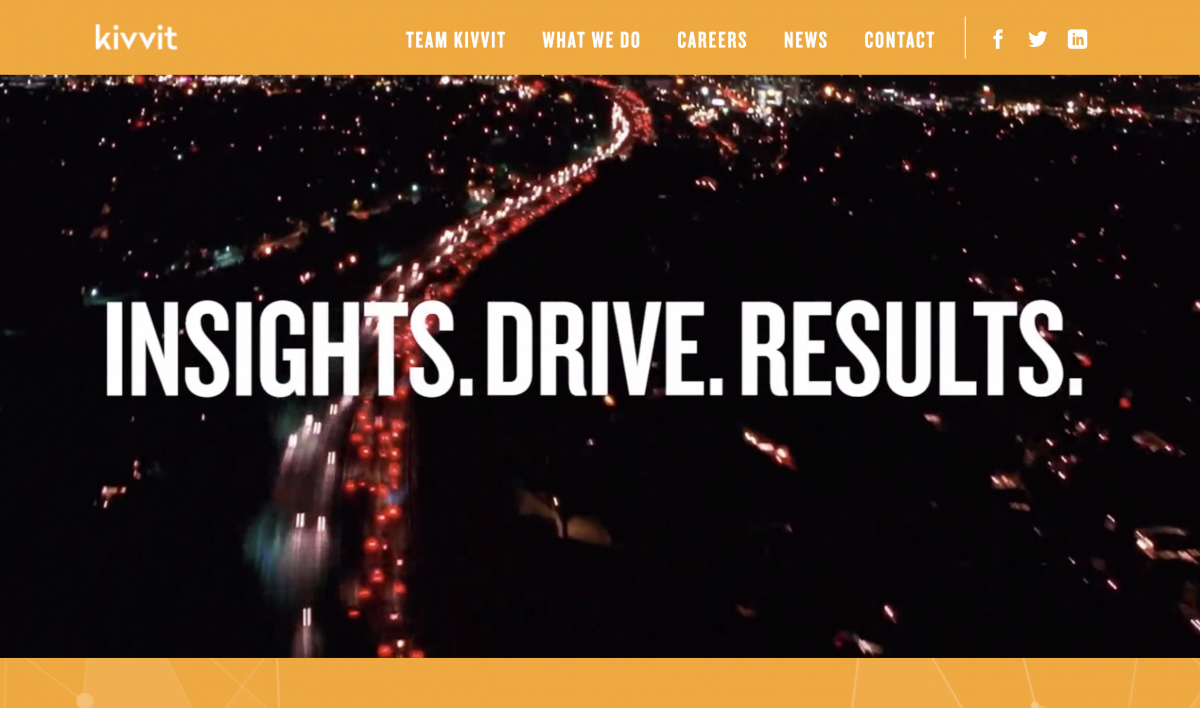Zach Silber — how to influence public opinion with data-driven analytics
What are the best strategies for shaping public opinion? Can organizations persuade people to change their minds?
Zach Silber said his company, Kivvit, applies news and social media analytics to inform public advocacy strategies. Silber, the company’s chief innovation officer and former political director of the New York Observer, spoke on Thursday, Sept. 30 at “Pizza, Press & Politics,” a weekly speaker series at the Northeastern University School of Journalism.
Silber leads Kivvit’s insights and innovation practice, an award-winning team of technologists and data strategists who analyze news, social media, advertising and audience trends while integrating data tools and technologies.
Kivvit is an independent strategic communications and public affairs firm born from the cutting-edge tactics of former-President Barack Obama’s pre-2008 campaign team.
The company was founded in 2002 as a Chicago-based public affairs firm by David Axelrod, chief of strategy and communications for Obama’s presidential campaign, and Eric Sedler, a former executive at AT&T. Silber describes his work as “leveraging news analytics to produce data-driven public affairs and strategic communications strategies.”
Though focused on building insights, Kivvit aims predominantly to persuade public opinion — helping their clients, voters and customers to “believe.” Silber’s team of seven were all liberal arts majors in college, with only one studying computer science. This, Silber suggested, gives Kivvit its unique ability to provide innovative and immersive public affairs and communications strategies. “It’s not our background, but we all use data to solve problems,” he explained. “It’s out of curiosity, not our past expertise.”

The key theme of Silber’s speech was his three-step tactic for persuasion campaigns: “Who has power? What do they find persuasive? From whom?”
Silber explained that he learned this three-step approach from a favorite professor at his alma mater, George Washington University, and adopted it as a guiding principal for his work with Kivvit. These three markers were integral to Silber’s broader description of implementation and methodology in his work — whether that was news cycle management or the utilization of media intelligence tools such as NewsWhip.
Silber emphasized the importance of relationships and the power of humanity in his work while he displayed analytically focused examples. For him, this includes demonstrating which reporters are the most popular with members of Congress, for example, or breaking down demographic information of people impacted by particular news stories on Twitter.
“If someone tells you that AI will replace lots of jobs and push you out of the workplace, they couldn’t be further from the truth,” he said. Silber explained that data is only effective when accompanied by and weaved into storytelling and not just displayed in one big “impenetrable” and “intimidating” bulk.
Read more about Zach Silber and his work with Kivvit in his feature for PRWeek.





